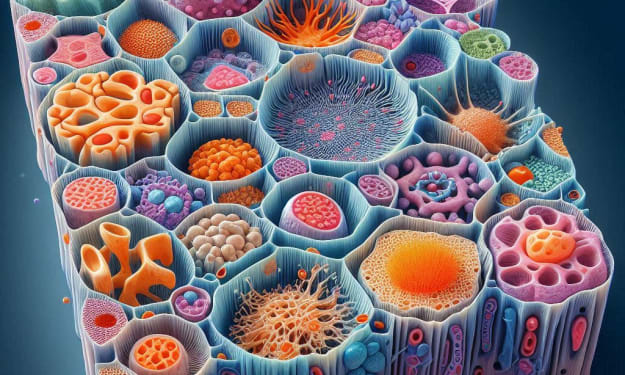Distinguish Physical Hunger From Emotional Hunger
It's always good to understand your hunger

Were you surprised by eating desserts at the end of rich holiday meals, even if you weren't hungry anymore? Well, the desire to eat something sweet even when you have a full stomach is due to emotional hunger.
However, in everyday life, physical hunger and emotional hunger may seem difficult to differentiate because the craving for something sweet such as pancakes, muffins, or cakes can have different causes.
First of all, your stomach sends you messages of hunger through the craving for carbohydrates when you feel empty, secondly, your body demands sugar when you are bored or you simply need a distraction.
Emotional eating is one of the wrong but comfortable and relaxing ways to respond to stressful times, negative emotions, and difficult situations by eating certain foods. Emotional hunger or compulsive eating is an acute need for low-calorie, high-calorie foods, usually high in carbohydrates, salty or sweet.
This type of food is called comfort food. Ice cream, chocolate, chips, french fries, pasta, pizza, cakes, candy, but not only, are part of this category.
It is already a custom that we find in movies, in literature: if it is abandoned and sad, it sits in front of the TV with the biggest box of ice cream possible and eats it all. It's a classic image.
Explication? We eat what is good and pleasant to the taste because in this way we are fooled that we will compensate for the sadness and stress and we will feel better. In other words, we fill our gaps and emotional dissatisfaction with unhealthy high-calorie food that makes us happy.
Compulsive eating not only does not contribute to solving emotional problems but also has a double effect on the psyche, because, at the initial problem, that of emotional suffering and stress, there is regret for increased food consumption in the name of the need for relaxation.
Although physical hunger and emotional hunger have similar signs, once you understand the differences between them it will be easy to eat only when the body needs food, you will be able to lose weight more easily and you will significantly reduce the amount of sugar consumed.
Find out in the following lines the five signs that help you differentiate between physical and emotional hunger.
1. Emotional hunger appears in response to your feelings, and physical hunger is felt after a food break.
If you tend to eat food when you feel sad, happy, bored, excited, stressed, or worried, find out that it is not the feeling itself that triggers the feeling of hunger, but your inability to experience those feelings in the absence of an external stimulus such as food.
On the other hand, physical hunger occurs after a break of food for several hours, when blood sugar levels drop and signals are sent such as stomach noises, fatigue, headache, irritability, or difficulty concentrating.
2. Emotional hunger occurs suddenly. while you gradually feel physical hunger
If your cravings are accompanied by an urge or an urgent need to eat, most likely the emotions experienced are the generating factor, and your body does not need food.
Instead, physical hunger occurs over time due to the breakdown of previously consumed food and energy consumption, at which point your body needs to be fed but not urgently.
3. Emotional hunger makes you crave certain foods, while emotional hunger lets you choose from a wide range of products.
Emotional hunger usually makes you crave fast food or junk food, but when you feel physically hungry you tend to look for nutritious foods such as vegetables, seeds, cooked food, or grilled meat.
4. Emotional eating does not give you the feeling of satiety, while the biological need for food stops when your stomach is full
When you eat to fill your stomach and feed your body, you stop eating when you feel full, being able to control your impulses. Instead, when you satisfy your emotional hunger, you stop eating only when the feeling that triggered the impulse of food intake decreases in intensity.
5. Emotional eating induces feelings of guilt, however, physical hunger is satisfied without remorse
Emotional episodes are meant to dampen your feelings and make you feel better, but then give way to feelings of guilt and shame because you couldn't resist the urge to eat.
Instead, when you eat to satisfy a physical need and hunger, your body feels nourished and you have no reason to feel guilty.
About the Creator
Enjoyed the story? Support the Creator.
Subscribe for free to receive all their stories in your feed. You could also pledge your support or give them a one-off tip, letting them know you appreciate their work.





Comments
There are no comments for this story
Be the first to respond and start the conversation.